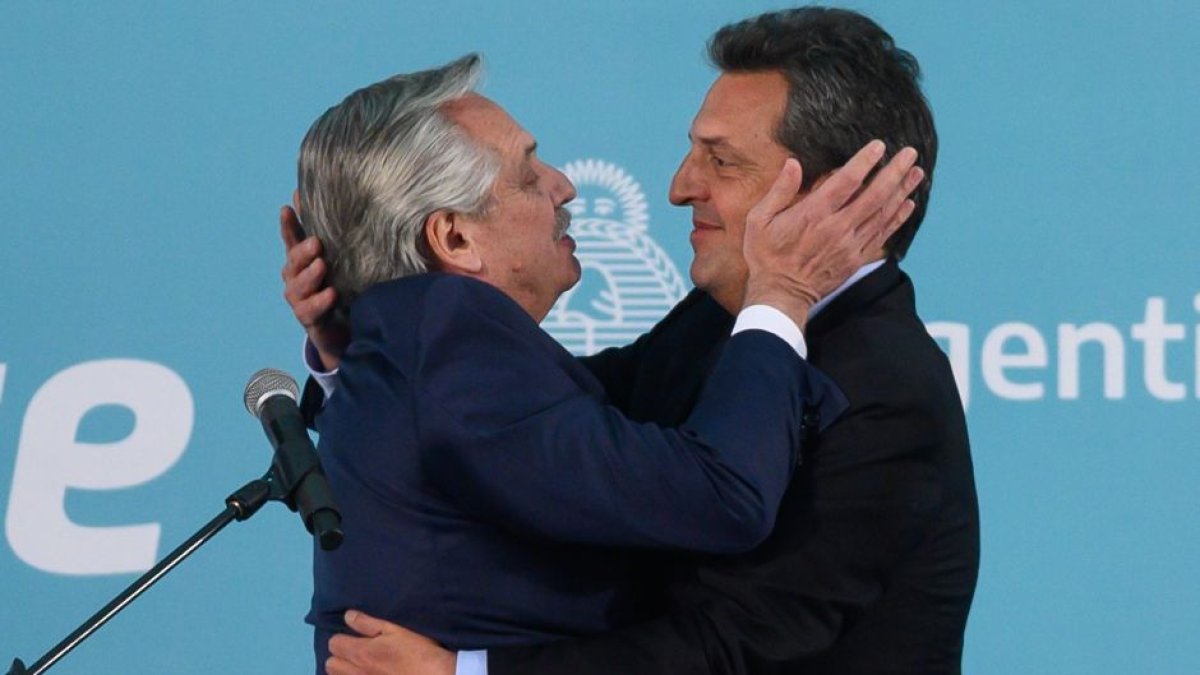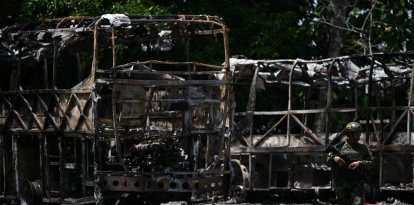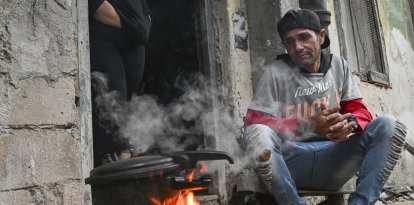Peronism, the Argentinean Wagner Group
Living in Argentina has made me realize that some of the characteristics of the Wagner Group are similar to those of Peronism in Argentina.

Argentine President Alberto Fernández (left) and his party's presidential pre-candidate Sergio Massa (right).
Recently, a Russian paramilitary organization became famous due to the rebellion against Vladimir Putin's government. Yes, I am talking about none other than the Wagner Group, a group of mercenaries that served the Kremlin during the Russia-Ukraine war until it embarrassed Moscow.
Living in Argentina has made me realize that some of the characteristics of the Wagner Group remind me of those of Peronism in Argentina.
The group, on paper, responds (or used to respond) to Moscow, in the same way that Peronism, on paper, responds to Cristina Fernández de Kirchner. However, as we have seen, Wagner lashed out against Putin, as did the current Minister of Economy, Sergio Massa, when he rebelled against Cristina and her entourage, whom he accused of being corrupt parasites. "It is a completed stage," Massa said a few years ago about Kirchnerism, when, with presidential intentions, he had opened himself to this Peronist trend. He was even closer to former President Mauricio Macri. However, because his word was less valuable than the Argentine peso, he finally returned to Kirchnerist Peronism where he eventually built ties with the corrupt parasites he had so condemned.
In the face of the resounding economic failure that is Alberto Fernandez and his misnamed vice president Cristina Kirchner. Sergio Massa showed up almost a year ago as a "savior" to lead the country's economic destinies, although he only made things worse, increasing the annual inflation in the triple digits. The country's currency has been devalued at a record rate, adding more poor people to a country sunk in misery. The only place with more poverty and higher inflation is Venezuela.
Peronists are used to betraying each other. Their fights and reconciliations have nothing to do with their convictions, it is all part of their strategy to stay in power. As General Juan Domingo Perón said: "We Peronists are like cats; when we seem to be fighting, we are reproducing."
The Wagner Group gave up the coup d'état after betraying Putin, but Peronism did not give up, nor will it. It is irrelevant that Massa is, together with Cristina and Alberto, one of the architects of the government's failure. However, in a country like Argentina, he can still win.
Of course, the misnamed President Alberto Fernandez, Cristina and Massa hate each other as much as they need each other, just as Putin needs (or needed) the Wagner Group. Therefore, although everything seemed to indicate that Kirchnerism was going to allow voters to choose their candidate for president in the PASO (preliminary elections to choose the candidate of each party), Cristina finally chose Massa, who was introduced as the hope of Kirchnerism almost as the only candidate. He will have to face Juan Grabois, one of the managers of poverty whose only virtue consists of blocking off streets, shouting and collecting money from citizens to continue holding the poor hostage. Grabois -a reactionary communist- has always been a strong critic of Massa, and although he withdrew during his pre-candidacy, he came back to run again after the chief of the party decided to choose the current Minister of Economy to be the candidate for president. In any case, beyond the competition, both pre-candidates must have a clear objective: to grant impunity to Cristina, who was accused and has since been convicted of multiple corruption cases.
Confusion reigns in the core of Kirchnerist supporters, who like good seals applaud any sound that comes out of Cristina's mouth. This confusion can be compared to that of Russian citizens when they saw the members of the Wagner Group rebelling against the Kremlin. Just as Cristina chose Alberto -who used to be one of her worst critics before she had an inordinate lust for power- to give a more positive image to the country, now he is doing the same with Massa -who used to be one of his worst critics before his excessive lust for power. Please excuse the repetition, dear reader, but the history behind Peronism is quite repetitive.
After the coup d'état carried out by the Wagner Group failed, I saw the images captured by Russian troops entering the mansion where the leader of the mercenary organization, Yevgeny Prigozhin, lived. At that moment, I was reminded of the countless luxury properties owned by Cristina and her entourage of officials and businessmen who are her subjects. They were all obtained in an absolutely unjustified manner, to put it nicely.
Now, can we blame populist leaders for all that has gone wrong? Could it be that mercenaries are only in power or could it be that Argentine society also abounds in voluntary slaves who sell themselves for breadcrumbs and empty promises?
If, as they say, insanity consists of always doing the same thing and expecting different results, what can be said of a country where the same thing is always done despite the people knowing that the result will always be equally catastrophic?
























